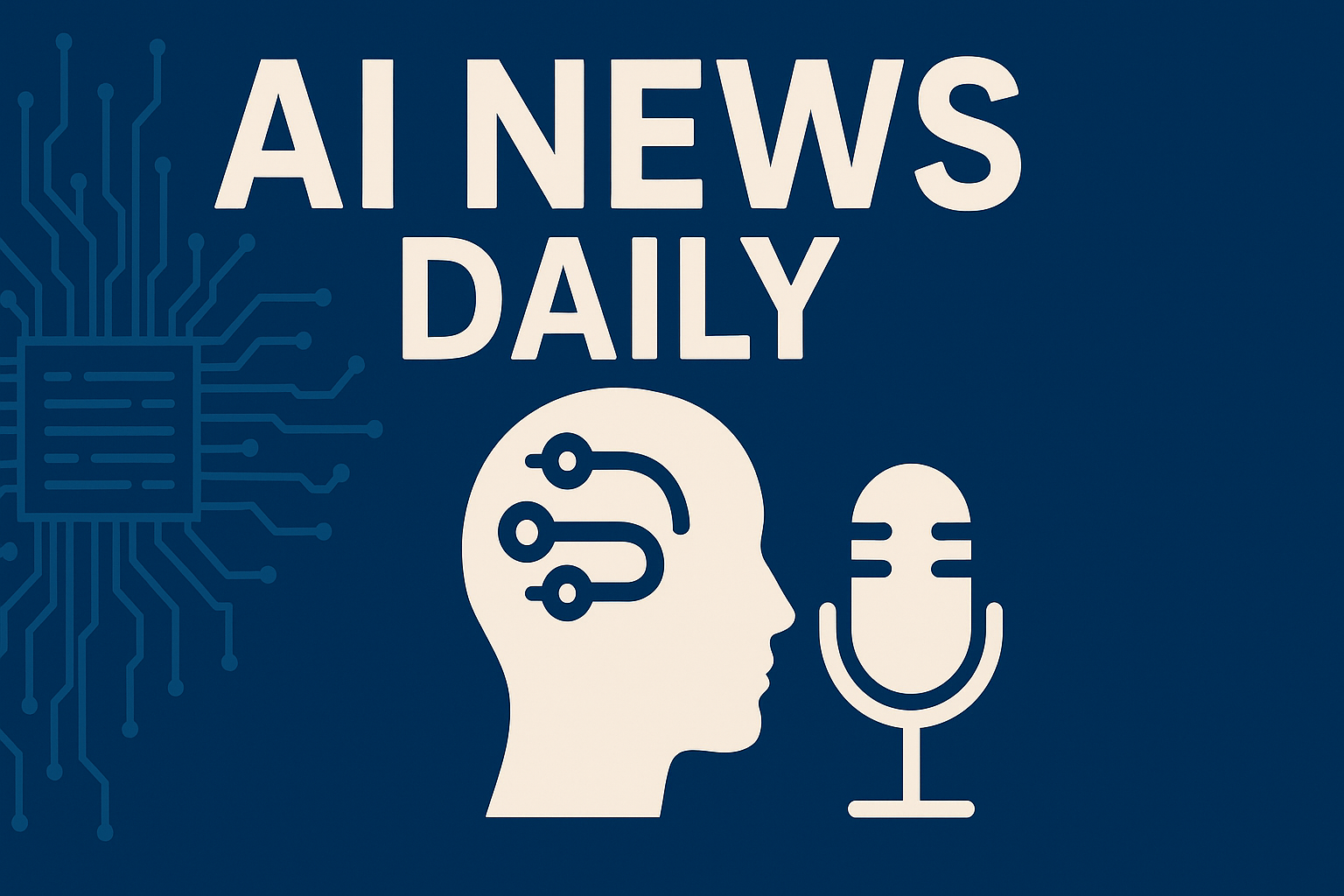Title: AI Weekly: Musk Sues Apple/OpenAI as Apple Weighs Google Gemini; OpenAI Scales Up and Expands in India; Security and Government AI Adoption Surge
Content: Elon Musk’s xAI filed an antitrust suit against Apple and OpenAI, alleging they colluded to privilege ChatGPT in the App Store and iPhone integration over rivals like xAI’s Grok. Even as tensions rise, Apple is in advanced talks to integrate Google’s Gemini model into Siri—potentially debuting in a future iOS release (reportedly iOS 26)—in a bid to catch up with leading assistants.
OpenAI’s infrastructure ambitions escalated as it sought more than a million GPUs and pursued the $500 billion “Stargate” project with Oracle and SoftBank, underscoring a global race for compute. China’s DeepSeek debuted an enhanced model powered by domestically made chips, highlighting tech self-reliance. Google warned AI’s energy footprint could triple by 2028 despite per-prompt efficiency gains, urging sustainable practices across providers and users.
Public-sector adoption accelerated: Google launched Gemini for Government to modernize U.S. federal agencies with secure language, analytics, generative tools, and virtual agents, alongside a reported contract priced at just $0.47 per agency. Silicon Valley leaders, including Andreessen Horowitz and OpenAI’s Greg Brockman, backed new AI-focused PACs and Super PACs to shape U.S. policy around innovation, safety, and ethics.
Security researchers flagged critical risks and new defenses. Trail of Bits exposed a vulnerability where hidden commands in images can trigger AI tools—such as Google Gemini and Vertex AI—to leak sensitive data after image resizing. Apple patched a major zero-day under active exploitation, while popular Android VPN apps with over 700 million downloads were found insecure. Enterprises gained new protections: Cloudflare enhanced its Zero Trust suite with AI Security Posture Management and Prompt Protection, and Google Cloud integrated Model Armor, Gemini AI, and Mandiant intelligence to automate incident response and counter AI-specific threats. Researchers also unveiled Chimera, an AI system that simulates realistic insider behavior to train and test defenses. Beyond cyber, experts warned AI is lowering barriers to chemical weapons development, calling for tighter global oversight.
India emerged as a pivotal AI battleground. OpenAI opened a local office, named former Coursera executive Raghav Gupta Head of Education for India and APAC, launched an OpenAI Learning Accelerator, and partnered with IIT Madras. The initiative includes free ChatGPT access for nearly 500,000 teachers to boost AI literacy and responsible use. With ChatGPT usage making India its second-largest market and Big Tech slashing prices to gain share, government backing and demographics are strengthening India’s bid to become a global AI hub. Early evidence of impact: teachers using AI tools report reclaiming nearly six hours a week for instruction and personalization.
New releases and partnerships broadened access and competition. Elon Musk open-sourced the Grok model to spur community-driven innovation; ByteDance released Seed-OSS-36B LLMs with strong reasoning, coding, and long-context capabilities on Hugging Face; and Meta partnered with Midjourney to enhance visual content creation across its platforms. Synology launched a privacy-focused AI office suite for email, documents, and analytics. Google opened its Veo 3 AI video generator for free public trials through August 24 to showcase capabilities and entice new Gemini users. An Israeli startup, Tzafon—backed by OpenAI and xAI—is building human-like AI agents to automate cross-app digital work.
AI continued making headway in science, health, and everyday services. Researchers unveiled DECIPHAER, an AI tool that links bacterial imagery to gene activity to rapidly decode how tuberculosis drugs work, potentially accelerating drug development for infectious diseases and cancer. A Hong Kong University team introduced an AI system assessing sperm quality with over 96% accuracy to improve IVF outcomes. In hospitality, Australia’s DineLine AI now automates phone orders, cuts third-party fees, and remembers regulars’ preferences, with global rollout plans. Sports fans will see AI-powered “Match Chat,” live probabilities, and automated news summaries at the 2025 US Open via IBM and the USTA.
Market dynamics reflected both disruption and maturation. AI coding tools pressured traditional software spend and valuations amid debate over “agentic AI” impacts, while a broader slowdown in headline-grabbing breakthroughs may allow more focus on safety, reliability, and practical deployment. Consumer behavior kept shifting: users now average about 50 AI app sessions each, with ChatGPT usage approaching that of search engines—signaling a durable pivot toward AI-driven productivity and information access.
